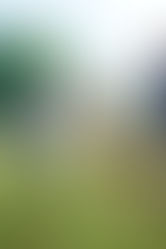
Permaculture
&
Beyond
embodied learning experience
next staging: subscribe to be notified
Learn permaculture design and transform how you see Life all around you
A 3-week Permaculture Design Course that invites us to embody and apply ecological ways of being from the very first day. This is a program for right now.
We explore the standard 72-hour Permaculture Design Curriculum while going beyond it to develop our ecological designers' mind and build life skills for a more regenerative human culture.

When we work with nature, rather than trying to impose our will, the solution is often found within the problem.
- David Holmgren, Permaculture co-originator
We will cover:
Permaculture Design Principles and Ethics
Reading Landscape and Site Analysis
Soils and Composting
Designing for Water
Patterns in Nature
Natural Building Techniques
Biogeography and Ecosystems
Trees and Food Forrests
Regenerating Degraded Areas
Community and Social Organization
(and much more)


Why Permaculture
Permaculture is a holistic design approach that creates productive systems for human settlement in greater harmony with nature. From growing food regeneratively to bio-construction, Permaculture approaches can be applied to homes, communities, broadscale farming and ultimately, ecosystem restoration.


where
This program takes places across Jamaica. We will practice being residents of different localities, with focus on Saint Ann and Saint Thomas, with visits to Kingston, The Blue Mountains and other areas
Permaculture presents a set of design principles derived using ‘whole-systems thinking’ that looks on systems in all their functions, rather than asking only one yield of them;
topics
Permaculture Principles. Design Concepts
- Ethics and Principles - Natural Laws and Design Concepts - Elements and Functions - Ecological Succession -
Soils. Fertility
- Soil Science - Soil Evaluation Skills - Regenerative Soil Management - Composting and Natural Fertility Aids -
Climate. Biogeography
- Climatic Factors in Design - Bioregional Approaches - Ecosystems - Microclimates -
Water. Earthworking
- Water Harvesting, Storage and Recycling - Major Earthworks - Swales, Ponds, Dams -
Energy. Appropriate Technology
- Integrating Renewable Energy in Designs - Determining Appropriate Technologies - Introduction to Solar Energy -
Community. Economy
- Invisible Structures - Social Permaculture - Community and Urban Strategies - Regenerative Economics -
Reading Landscapes. Analysing Sites
- Observation Techniques - Mapping - Sector Understanding - Dynamic Zoning -
Natural Pattern Understanding
- Identifying Patterns in Nature - Patterns as Forms of Distributing Energy - Patterns in Time and Niches - Using Patterns in Design -
Trees. Food Growing
- Trees and Their Energy Transactions - Forests - Tree Crops and Food Gardens - Agroforestry -
Natural Building and Crafts
- Natural Building Techniques - Hands-on Building with Clay, Sand and Fibers - Making Adobe Bricks - Natural Plasters and FInishes - Earthen Walls, Benches and Cookers
Animals. Aquaculture
- Introduction to Animal Integration in Design - Basics of Aquaculture Designs - Designing for Wildlife -
Applied Design Exercises
- On-site design challenges - Practical design projects - Final design presentations -



















